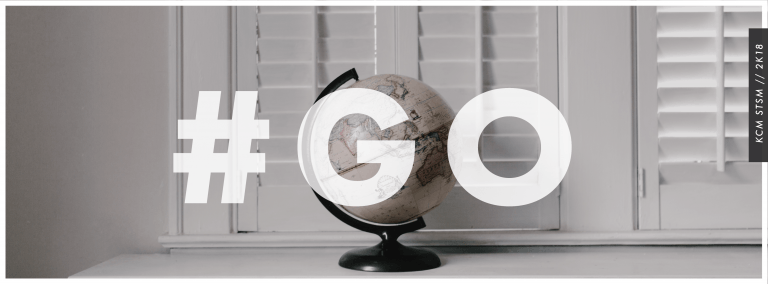By Esther Yu
Esther is currently a student at UCLA studying International Developmental Studies and serving in UCLA KCM.
I remember first reaching out to someone about getting counseling — it was a freaking nerve-wracking experience that I hid under layers and layers of apathy and self-doubt. “I don’t really need this, just need to suck it up and get my life together, I just need to pray more.” But I don’t know, there was just something in that one moment my sophomore year of college that just clicked for me — I don’t want to live in this unhealthy state of mind any longer. I’m tired of pretending. And that’s kind of all it took – I sent a quick text message to a trusted mentor, and within a couple of weeks I had my first meeting with an LMFT (licensed marriage and family therapist). I think just from my personal observation, mental and emotional health is a surprisingly taboo topic amongst young Christian collegians. We talk about the symptoms all the time – we probably all know of at least one or more people in our lives struggling with some kind of emotional/mental issue – but never the root or the cure. Asian-American Christians, in particularly, seem to struggle with a unique kind of stigma surrounding emotional health and therapy. This stigma affected me too — it took about five years for me to finally get to that first meeting. But I want to really encourage KCM students, through sharing my own personal experience and observations, to be proactive about their mental and emotional health, and if you need to, seriously consider the benefits of professional counseling.
Why the Stigma?
Whether a first, second (like myself), or third generation child of Asian-American immigrants, I think a lot of collegians in KCM are well aware of the shame-based culture that surrounds us. We learned that our darkness, our issues, our traumas — these are things not are not to be shared publicly, if at all. This makes it difficult to grow emotionally because we’re discouraged from talking about our issues, especially shameful ones from our past. So even when you hear about other people getting counseling, it’s very tempting to think that while that’s good for them, ‘It’s not for me’. Or even though it’s easy to agree when people encourage getting professional help, it’s another thing altogether to apply that statement to yourself. And when everyone is posting up carefully constructed images of their ‘great’ lives on social media, it’s easy to think that because no one else seems like they need any help, you shouldn’t need any either. I’ve also noticed that there’s an ‘over-spiritualization’ of emotional and mental health. Needing help for your emotional or mental health is not just a statement about you, it’s a statement about the kind of Christian you are. You must not be praying enough, not praying in the right way, or you’re not being a ‘good enough’ Christian, etc, or else you wouldn’t have these kind of problems. This kind of over-spiritualization discourages people from seeking professional help.
How Counseling Helped Me
I just want to be really honest when I say that counseling doesn’t solve your problems. It doesn’t take away the things in your past that caused you pain. It’s definitely not easy. It requires a mental, emotional, time, and financial investment. But looking back on my experience, I can confidently say that I am far healthier today – mentally, emotionally, spiritually – than I was before counseling, and just generally a better and more productive person.
1. Healthier Mental Habits and Worldview
While therapy doesn’t solve your problems, it can give you tools to help you solve them. I learned how to respond to stressful situations in healthier ways, instead of giving in to the poor mental habits/responses that I had built up over my lifetime. Over time, I began to replace my unhealthy mental habits with better ones. Counseling helped me reshape my previously unhealthy and inaccurate worldview into one much healthier and more rational. Sometimes you just need an outside voice to tell you when you’re being irrational….and it really helps if that outside voice is someone who actually is trained to knows what he/she is talking about.
2. Healthier Relationships
Another benefit of counseling was to help me not to burden the relationships around me with baggage they aren’t equipped to carry. While having close friends whom you can share your darkest hurts and sins with is really, really important, there are some things that your friends simply can’t provide for you that a trained professional can. I often held a lot of unreasonable expectations from my friends who honestly had no idea how to help me, and this actually hurt a lot of my relationships. Going to counseling helped relieve some of that burden, and ironically, helped my relationships and allowed me to love my friends better, because I myself was in a healthier state to do so.
3. Healthier Spirituality
Lastly, counseling really helped my spiritual life. Prior to this experience, I kind of just assumed that if my spiritual life were to improve, naturally my mental and emotional life would follow. But interestingly, the stabilization of my emotional and mental health paved the way for an unprecedented amount of spiritual growth, rather than the other way around. I found that once I was healthier emotionally, I could be healthier spiritually. My ideas of who God really is and what life as Christ-follower really means/looks like became significantly healthier and more rational. My college pastor once described it to me this way: we all have spheres of our lives – our physical state, our mental state, our emotional state, and lastly our spiritual state. There are interactions between the states – our physical state affects our mental state, our spiritual life affects every other sphere of our life, etc. But sometimes we seek the wrong answers to the problems in our spheres. For example, if you had the flu, while you could decide to pray for healing and ‘trust God’, it would also make a lot of sense to just take medicine. God has provided a physical solution to a physical problem. In the same way, it makes complete sense to treat our emotional and mental health problems with the resources that God has made available to us – through counseling and community, along with prayer, self-reflection, etc.





